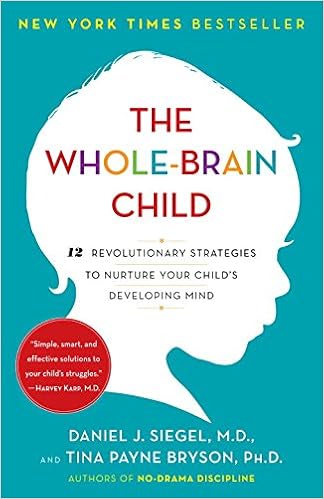When my wife revealed she was pregnant with our first child just over 4 years ago I was stricken with a sense of urgency to learn everything about child-rearing - how to care for an infant, how to make them smart, how to get them into a good college, how to make sure they aren't bratty, how to get them to sleep, how to help them find a good partner, what is attachment parenting, how to potty-train, do I need soothers, what kind of gear is actually necessary... you get the picture; I'm a bit of a freak. Call it first-time fatherhood jitters, but I seriously felt a need to learn everything I could and so I dashed to the library and walked out with a stack of books, determined to consume every single one.
As I embarked on my parenting inquiry I was immediately overwhelmed and perplexed by the sheer variety of books available - each one of my questions could have easily been answered ten times over! I also learned something about my reading habits that I never realized before - I'm a habitual researcher. Since parenting provides constant challenges and I'm always keen on doing some research, I keep parenting books on my radar (currently, I've borrowed Brain Rules for BABY by John Medina). After reading at least a dozen books on the subject of parenting (and attempting, but failing to read at least a dozen more) I've come to realize:
a) there's a lot of terribly useless information out there, so not all advice is necessary or worthy - know who's opinions you trust and follow your gut when taking advice
b) experience trumps everything as the best educator - no two kids are the same, so one-size-fits-all advice is just a pipe dream
c) take what you can - try it and if you like it, keep it
Now, I'm no expert at fatherhood, but I have been able to glean some incredibly valuable information and practical strategies from a few parenting books. At this point, I've read (and re-read) three books that have positively influenced my fatherhood experience - and I've even managed to rub some of my learning off on my wife (who admittedly relies on old fashioned instincts, not habitual research like me). I find myself often recommending this parenting trilogy to anyone willing to listen, especially new parents that feel a need to do some research...
 The Whole Brain Child
The Whole Brain Child by Dr. Daniel J. Siegel
The most practical and resourceful parenting book I've read to date. Dr. Siegal provides 12 easy-to-implement strategies for dealing with everything from defiance to tantrums and more. The title stems from the scientific principle that the brain is divided in two ways - left and right; top and bottom - and when there is discord between one side or the other, problem behaviours in children will arise. Each strategy proposes ways to balance or integrate all parts of a child's brain to calm and soothe them.
A simple poetic read based on the principles of Taoism and finding the middle way as a parent. The text is divided into 81 poems, which include questions to guide your reflection on the principles of parenting outlined. This format allows the text to function as a daily reflective journal which can be digested one or two (or ten) poems at a time. Ultimately, this book connected to my love of poetic forms and reinvigorated the joy I feel in fatherhood.

Family Wisdom From the Monk Who Sold His Ferrari
by Robin Sharma
Robin Sharma talking about family. 'Nuff said.











